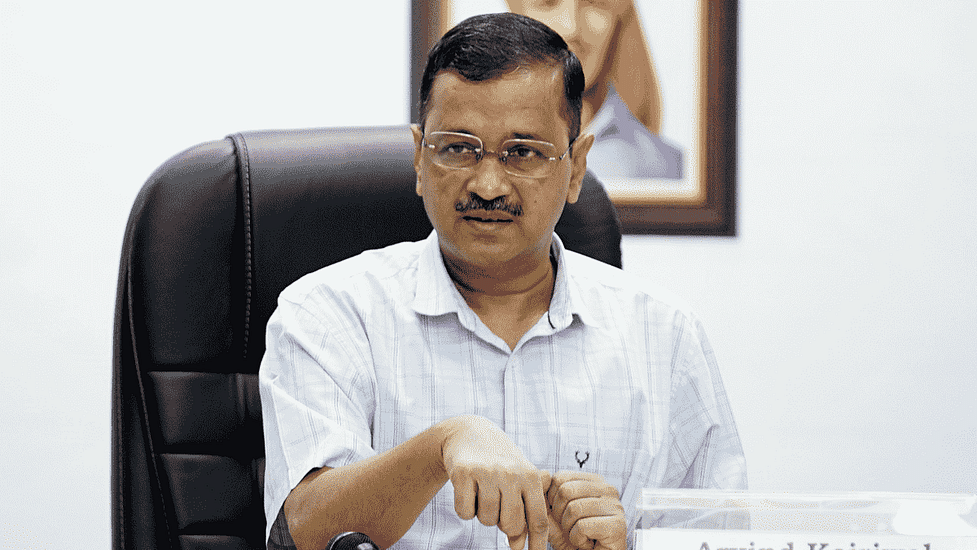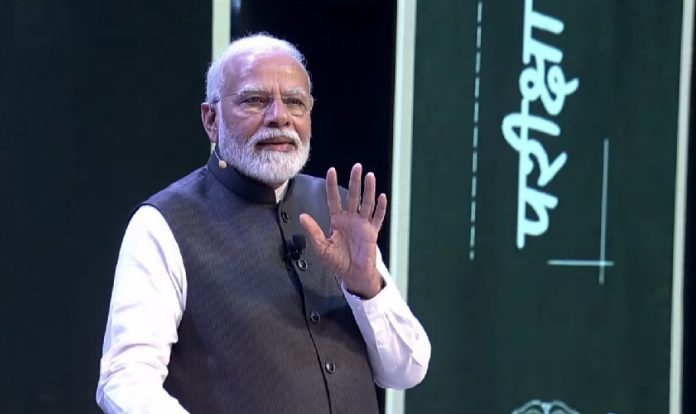In a significant turn of events, a controversy has erupted as eight Chief Ministers from the opposition parties have decided to boycott the eighth governing council meeting of Niti Aayog. The meeting, which will be chaired by Prime Minister Narendra Modi, is scheduled to take place at the new Convention Centre in New Delhi’s Pragati Maidan. The theme of the meeting is set to be ‘Viksit Bharat @2047: Role of Team India,’ aiming to discuss the future development and role of India.
 The eight Chief Ministers who have chosen not to attend the Niti Aayog meeting are Arvind Kejriwal of Delhi, Mamata Banerjee of West Bengal, Bhagwant Mann of Punjab, Nitish Kumar of Bihar, K Chandrashekar Rao of Telangana, MK Stalin of Tamil Nadu, Ashok Gehlot of Rajasthan, and Pinarayi Vijayan of Kerala. Each Chief Minister has cited various reasons for their decision to boycott the meeting, leading to a significant blow to the unity and cooperation among states.
The eight Chief Ministers who have chosen not to attend the Niti Aayog meeting are Arvind Kejriwal of Delhi, Mamata Banerjee of West Bengal, Bhagwant Mann of Punjab, Nitish Kumar of Bihar, K Chandrashekar Rao of Telangana, MK Stalin of Tamil Nadu, Ashok Gehlot of Rajasthan, and Pinarayi Vijayan of Kerala. Each Chief Minister has cited various reasons for their decision to boycott the meeting, leading to a significant blow to the unity and cooperation among states.
Arvind Kejriwal, in a letter addressed to Prime Minister Modi, expressed his strong opposition to the “undemocratic and unconstitutional” May 19 ordinance, which transferred control over services in the national capital back to the Centre. This move effectively nullified a Supreme Court order that granted control of services, excluding police, public order, and land, to the elected government of Delhi. Kejriwal’s boycott serves as a protest against this decision and a stand for the autonomy of the Delhi government.
Major Controversy as Eight Opposition Chief Ministers Boycott Niti Aayog Meeting Chaired by Narendra Modi
Mamata Banerjee’s absence stems from the Centre’s refusal to allow the state’s finance minister and chief secretary to represent West Bengal at the meeting. The TMC government had requested their attendance, but the Centre insisted on Mamata Banerjee’s participation instead. In response, Banerjee decided not to attend the Niti Aayog meeting, leaving West Bengal without any representation. The Centre’s decision has further strained the already tense relationship between the state government and the Centre.
Nitish Kumar, the Chief Minister of Bihar, conveyed his inability to attend the meeting due to prior commitments. The Bihar cabinet awaits a response from the Union government regarding the possibility of sending a replacement for Nitish Kumar. The absence of Nitish Kumar raises questions about the coordination and communication between the Centre and the states.
K Chandrashekar Rao, the President of Bharat Rashtra Samiti and Chief Minister of Telangana, will also be missing from the meeting due to a scheduled meeting with Arvind Kejriwal in Hyderabad. Kejriwal has been engaging with opposition leaders to garner support against the services ordinance, and his meeting with KCR forms part of this campaign. KCR’s absence adds to the growing divide and regional dynamics in Indian politics.
 MK Stalin, the Chief Minister of Tamil Nadu, will be unavailable as he is currently on a visit to Singapore and Japan. Consequently, he will not be able to attend the Niti Aayog meeting. While his absence may be attributed to prior engagements, it highlights the challenge of synchronizing the schedules of Chief Ministers for such crucial meetings.
MK Stalin, the Chief Minister of Tamil Nadu, will be unavailable as he is currently on a visit to Singapore and Japan. Consequently, he will not be able to attend the Niti Aayog meeting. While his absence may be attributed to prior engagements, it highlights the challenge of synchronizing the schedules of Chief Ministers for such crucial meetings.
Bhagwant Mann, the Chief Minister of Punjab, has chosen to boycott the Niti Aayog meeting to protest against the alleged discrimination by the Centre regarding the grant of funds to the state. The Aam Aadmi Party‘s Punjab unit chief spokesperson has stated that the Chief Minister has raised the issue of the outstanding rural development fund with the Centre, but the funds have not been released, leading to his decision to boycott the meeting.
Ashok Gehlot, the Chief Minister of Rajasthan, has cited health reasons for his absence. While specific details about his health condition are not available, his nonattendance adds to the list of Chief Ministers who will not be present at the crucial Niti Aayog meeting.
Opposition Chief Ministers Escalate Controversy by Boycotting Niti Aayog Meeting Headed by Narendra Modi
Pinarayi Vijayan, the Chief Minister of Kerala, has not provided any specific reason for his absence. The lack of explanation further fuels speculation and raises questions about the reasons behind his decision to skip the meeting.
The boycott by these eight Chief Ministers highlights the growing dissonance between the opposition-ruled states and the Centre. It also exposes the challenges faced in maintaining a cooperative and inclusive approach towards national development. The absence of these Chief Ministers not only impacts the diversity of perspectives but also hampers the spirit of collaborative governance, which is essential for the progress of the country.
As the Niti Aayog meeting approaches, all eyes will be on the deliberations and outcomes, as well as the implications of the boycott by these opposition Chief Ministers. The need for constructive dialogue and meaningful engagement between the Centre and the states remains crucial for the effective implementation of policies and programs aimed at shaping the future of India.

